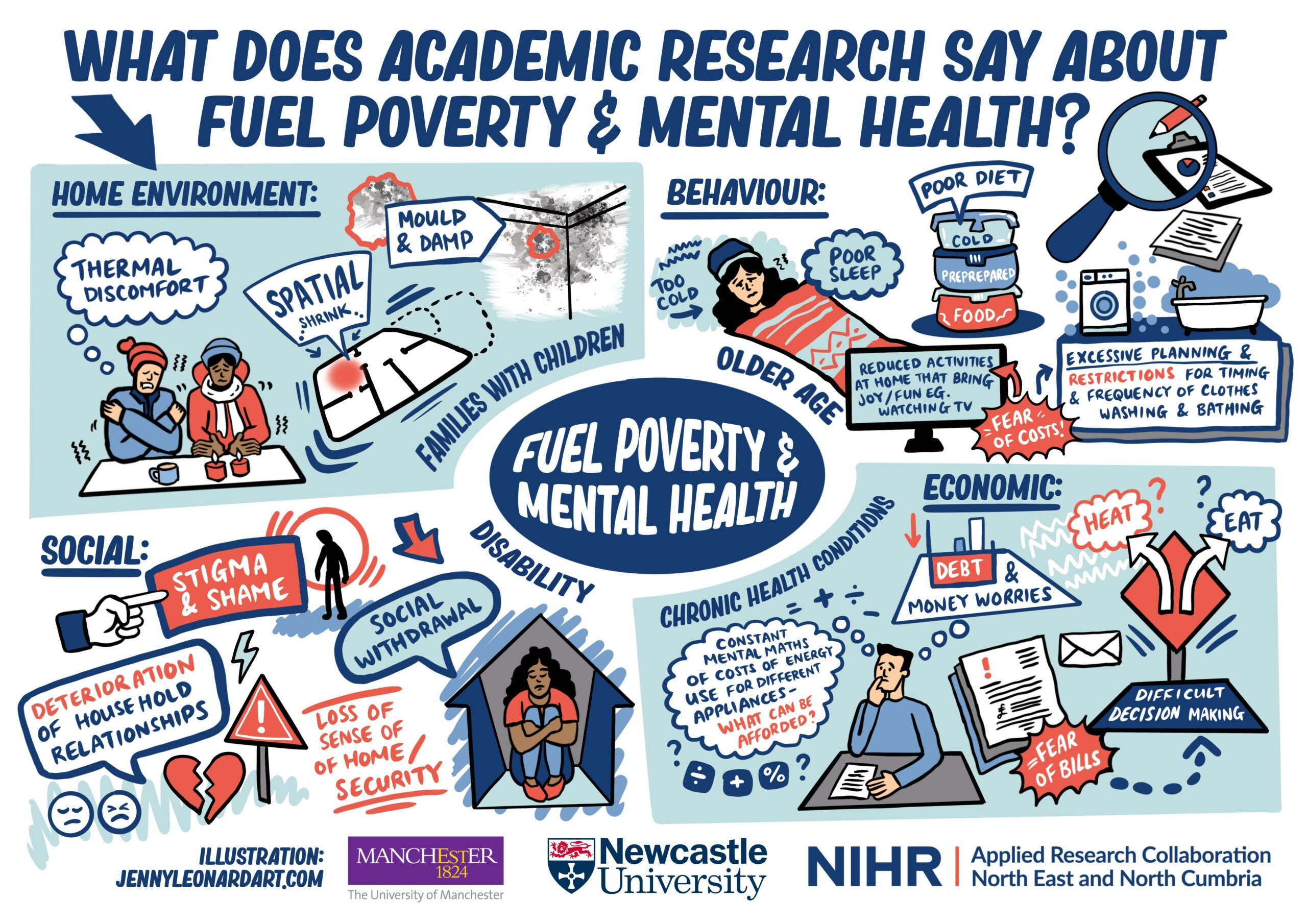How does fuel poverty affect mental health? Designing and testing a theoretical framework
What did we do?
We reviewed current studies to assess the relationship between fuel poverty and mental health to collate the available evidence. From this review, we assessed the proposed reasons (or ‘pathways’) behind how fuel poverty affects mental health and produced a theoretical framework. Then, we assessed the relationship between fuel poverty and mental health, the inequalities in this, and tested some of the pathways we identified.
Why was it important?
We know quite a lot about how the immediate home environment affects the health of residents and the associated inequalities by things like income, ethnicity, and household type. Within the current cost of living crisis, being unable to afford to heat the home (fuel poverty) is receiving greater attention from policy makers and the media.
However, research to date had mostly focused on the physical health impacts and tended to ignore the effects on mental health and resulting inequalities. This study aimed to better understand the ways fuel poverty affects mental health and how this affects society unequally.
How did we do it?
We collated the research to date demonstrating these impacts to mental health, so we can understand:
- What has been studied to date?
- Are there gaps in what we know?
- What kinds of explanations are given for how fuel poverty impacts mental health?
We sarched the global literature base for studies on the association between fuel poverty and mental health, including both quantitative and qualitative studies. We found 48 studies, over half of which studied the UK.
We worked with groups at Edberts House community centre in Gateshead and a steering group with the ARC Greater Manchester public involvement panel, including representation from their young people’s group, to inform our understanding of the lived experience of fuel poverty and to sense check our findings.
Our discussions with these groups were important in helping us to reflect on our findings and in helping us to communicate the findings of the research.
Findings:
Our search revealed links to mental health in four key areas:
- Home environment – including thermal discomfort and ‘spatial shrink’, where people heat and use fewer rooms in their home.
- Behaviour – including poorer sleep and diet, reduced recreational activities and extreme planning of the use of heat and appliances.
- Social – including stigma, social withdrawal, deterioration of household relationships and an eroded sense of home.
- Economic – including constant mental maths and evaluation of the costs of appliances, debt and money worries and difficult decision making.
As part of this work, we developed a graphic visualising the pathways discussed by the studies in our review, which was directly informed by the public contributors.

(Illustration by Jenny Leonard Art)
Downloadable resources:
Research team:
- Sam Khavandi (Co-Principal Investigator)
- Dr Natalie Bennett (Co-Principal Investigator)
Who did we working with?
- ARC North East and North Cumbria
- Newcastle University
- ARC-GM PCIE Panel
- Larkspur and Pattinson Houses, two community charities in Newcastle.
Funding:
This research is funded via an £9,975 award from the NIHR ARC Health and Care Inequalities and Prevention, including Behavioural Risk Factors National Priority Consortia.
More information:

Senior Programme Lead
Mike Spence
michael.spence@manchester.ac.uk